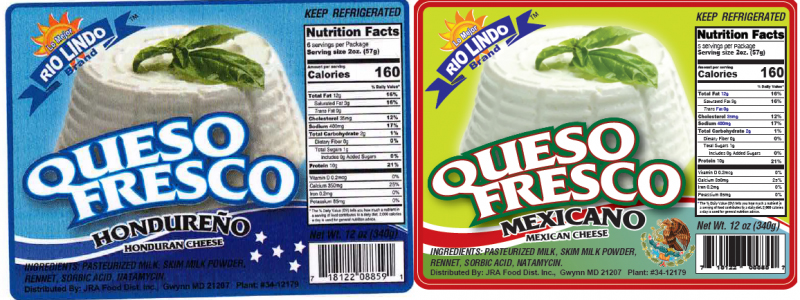Between 2014-2017, the FDA’s Coordinated Outbreak Response and Evaluation (CORE) network investigated five listeriosis outbreaks linked to the consumption of soft fresh queso fresco type (QFT) cheeses. Most recently, in 2021 CORE investigated an outbreak linked to soft fresh QFT cheeses that sickened 13 people. In response, the FDA has released a summary of a new strategy aimed at reducing foodborne outbreaks and illness associated with the consumption of soft fresh Queso Fresco type cheeses.
The agency noted that, historically QFT cheese-related outbreaks were found to be associated with unpasteurized milk; however, recent investigations have included cheeses made from pasteurized milk with contamination occurring during the cheese making process.
The prevention strategy is based on review of the outbreak findings, historical data, and engagements with industry and other stakeholders, and includes:
- Prioritizing inspections with environmental sampling at soft fresh QFT manufacturing firms.
- Engaging with state partners to increase sampling of QFT cheese at retail operations in the U.S. for the presence of L. monocytogenes.
- Developing and distributing a publication that outlines the potential causes of recent listeriosis outbreaks in soft cheeses and a fact sheet that describes requirements for Listeria control in cheese manufacturing.
- Collaborating with states and other food safety partners to disseminate training and education materials to producers and consumers of soft fresh QFT.
By implementing these activities, the FDA hopes to:
- Ensure that the cheese industry is aware of regulatory requirements applicable to the production of QFT.
- Enhance compliance with the applicable regulatory requirements by producers of QFT.
- Verify through inspections and sampling that producers of QFT are adhering to those requirements.
As part of the prevention strategy the FDA has also released a fact sheet to help manufacturers of soft queso fresco-type cheeses better understand food safety risks the can occur during production. The fact sheet also identifies food safety resources available to manufacturers.





